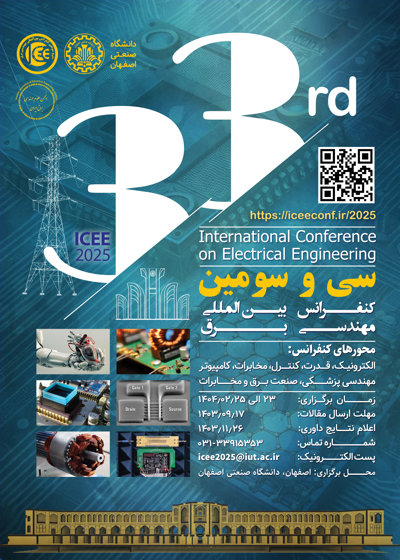0% Complete

نویسندگان :
کلمات کلیدی :
چکیده :
لیست مقالات بایگانی شده
Fazel Ziraksaz - Alireza Hassanzadeh
علی سلمانپور - حامد کبریائی
Maryam Dorvashi - Neda Behzadfar
مهدی گودرزی - فریدون بهنیا - امین آقاتبار رودباری
Mohammad Zargarzadeh - Mohammad Hasan Yavari - Mohammad Heydari - Mohammad Hasan Rezaei
Amirreza Bahadori - Ali Nadermohammadi - Mohammad Maalandish - Seyed Hossein Hosseini - Mehran Sabahi
Mohammad Mahdi Kiani - Zahra Mousavi - Hamid Aghajan
M. Moein Esfahani - Hossein Sadati
Mehdi Gholami - Mohammad Neshat





